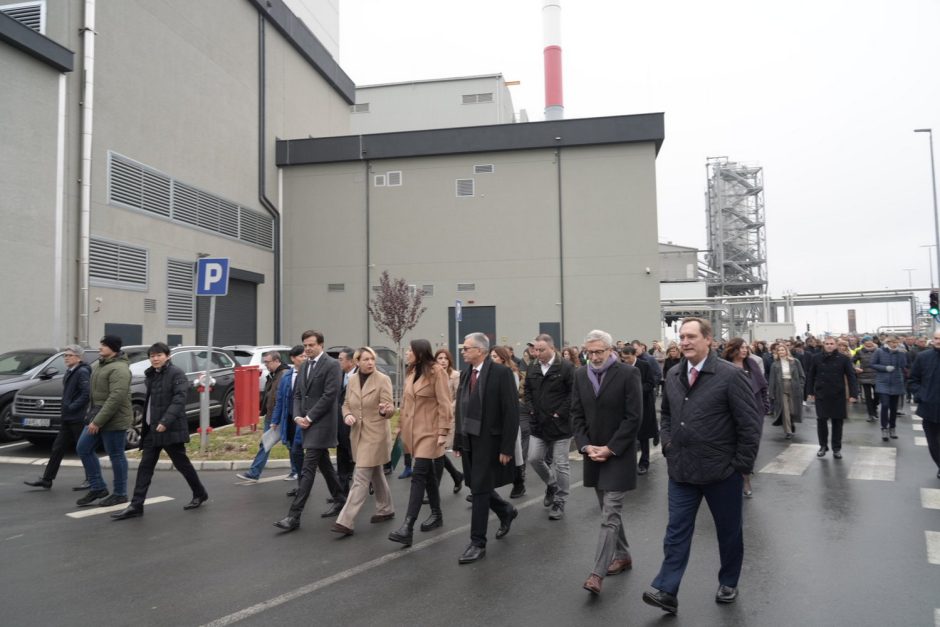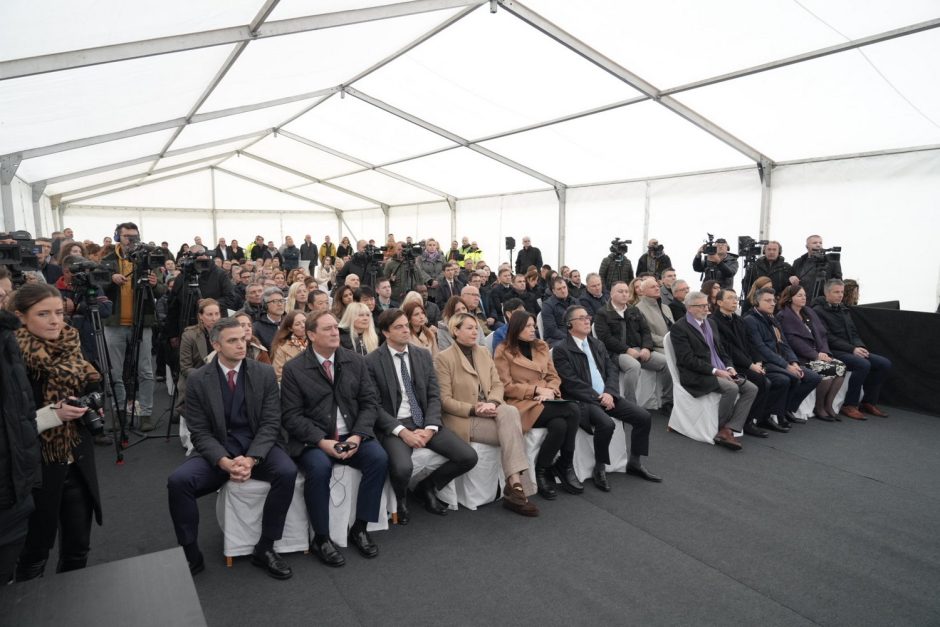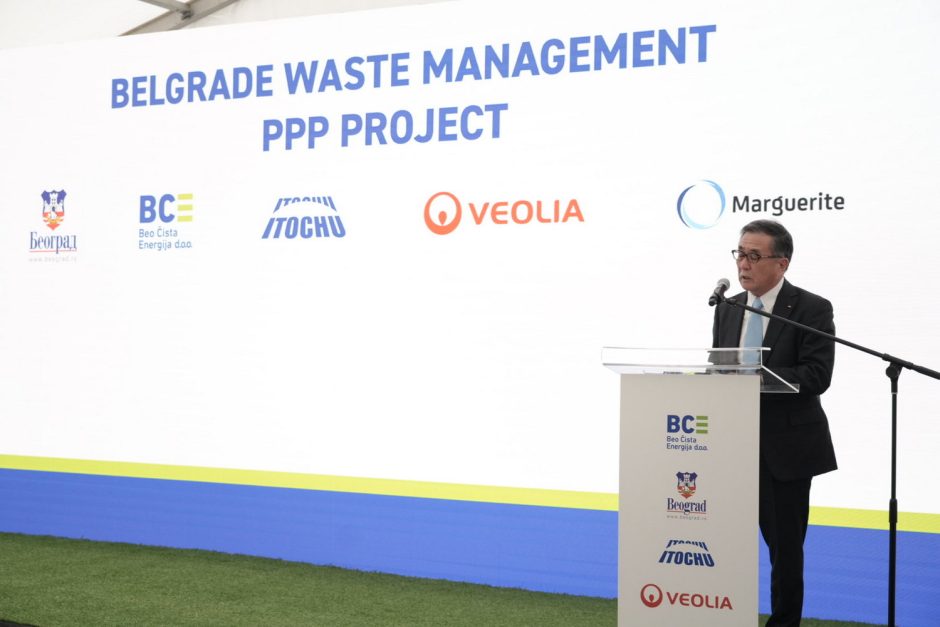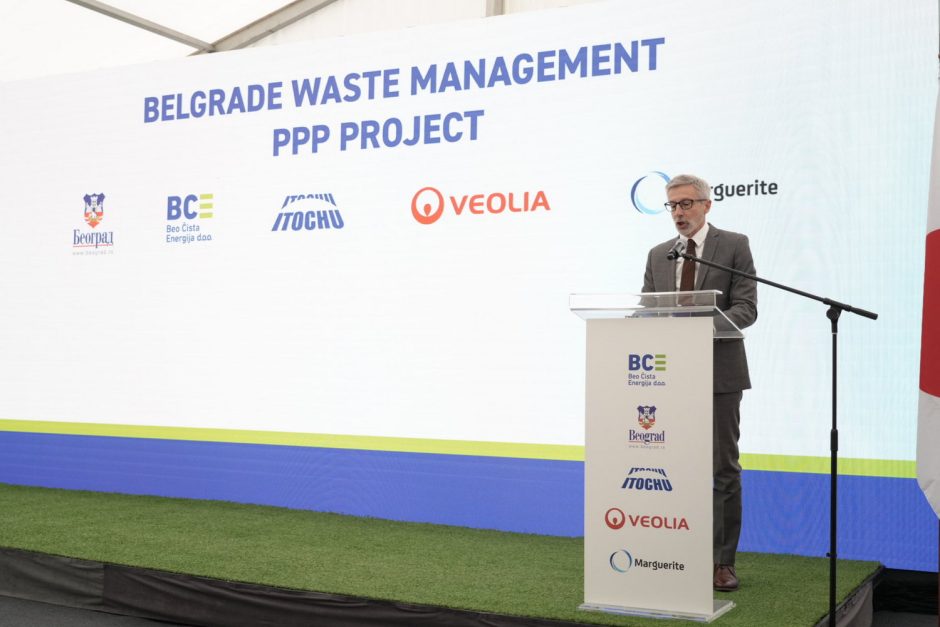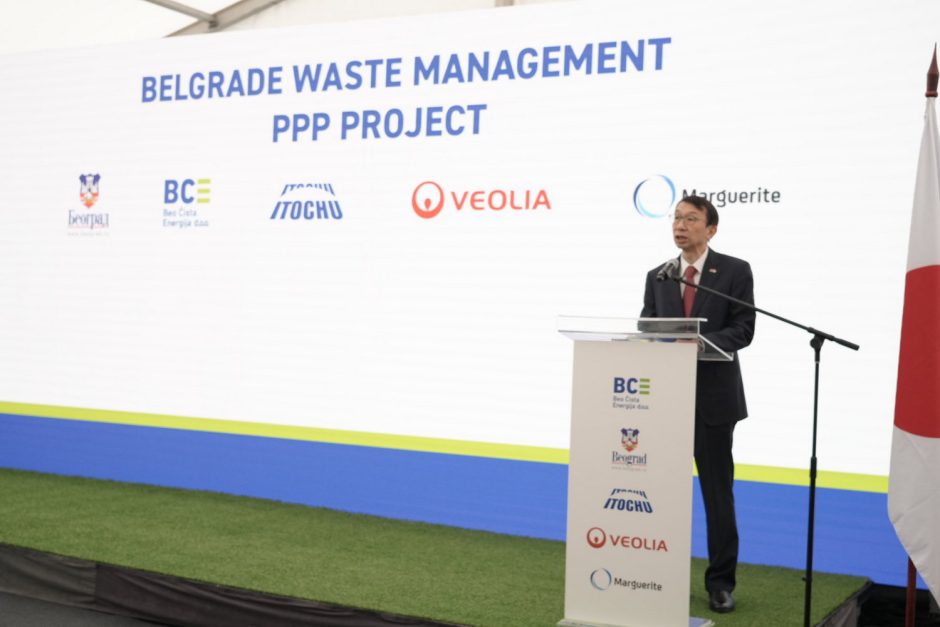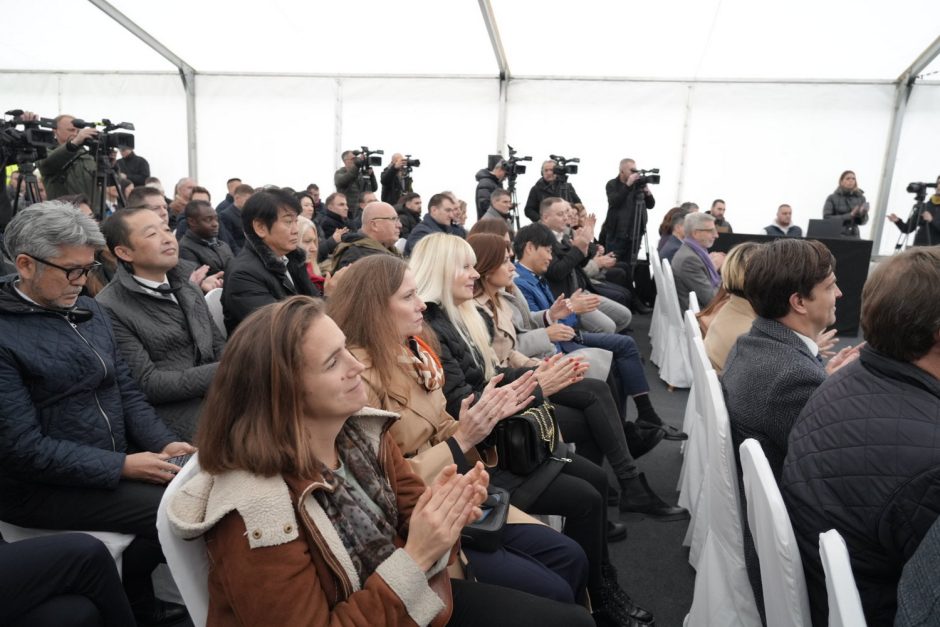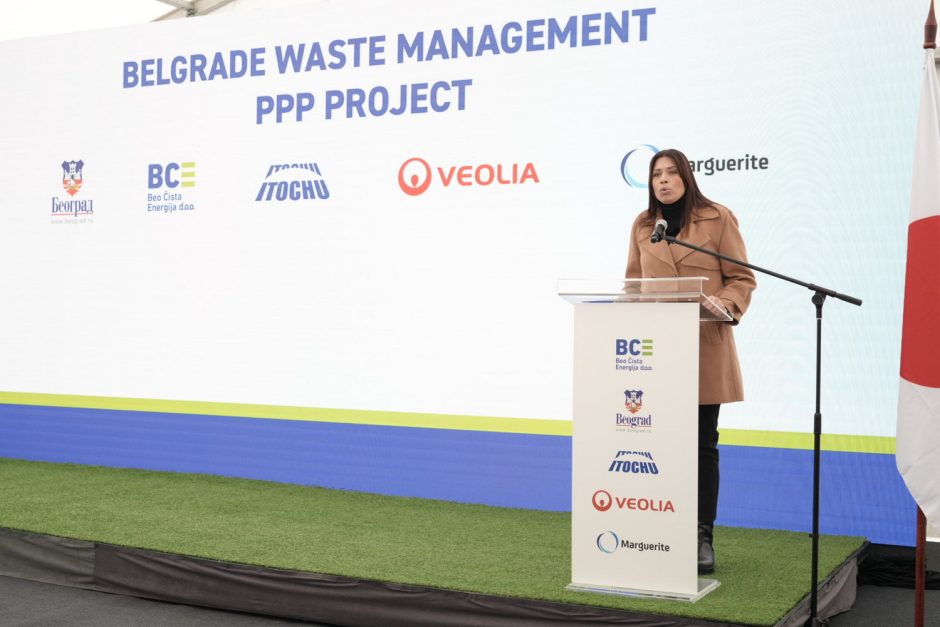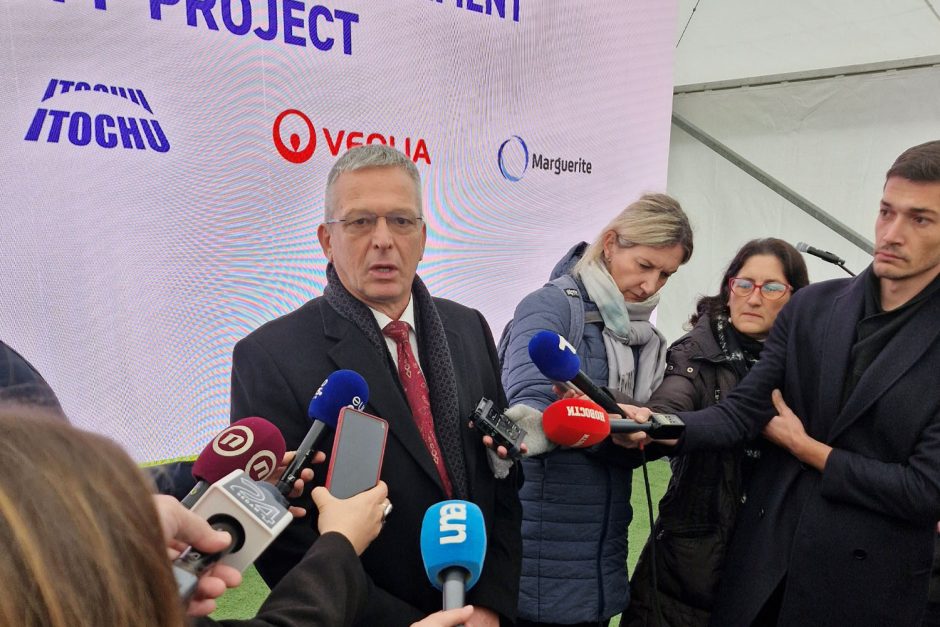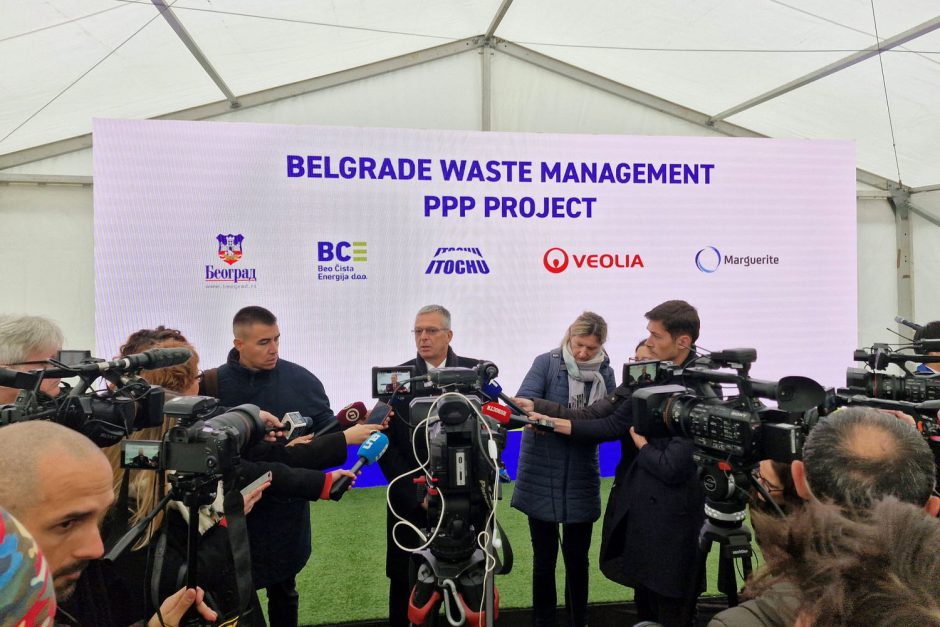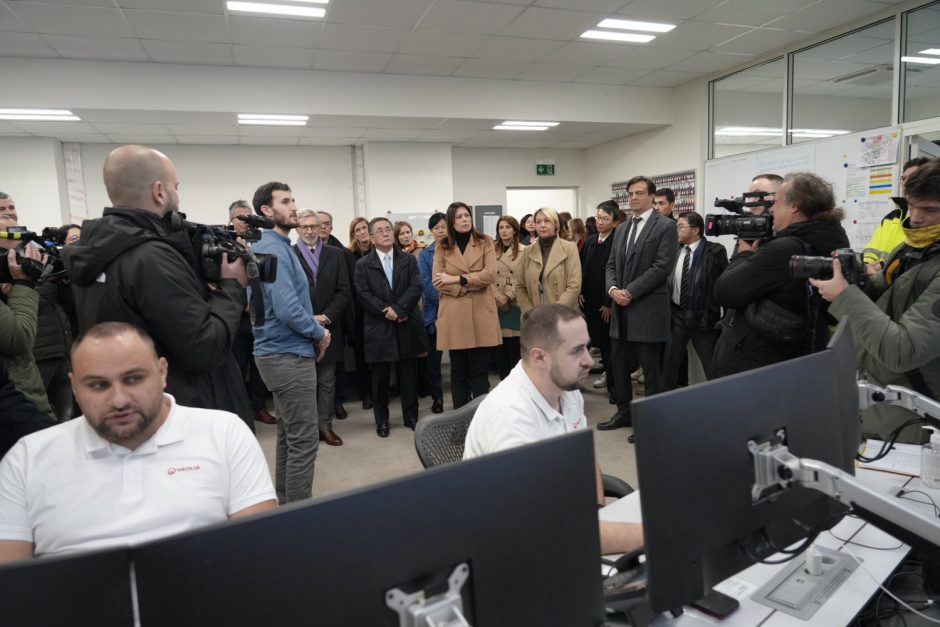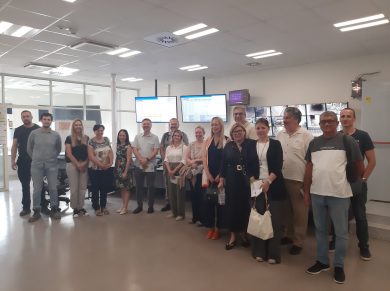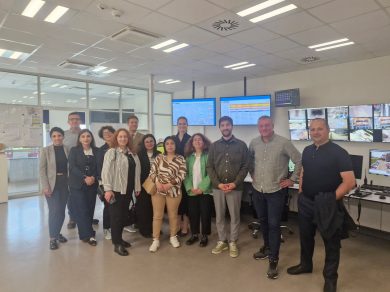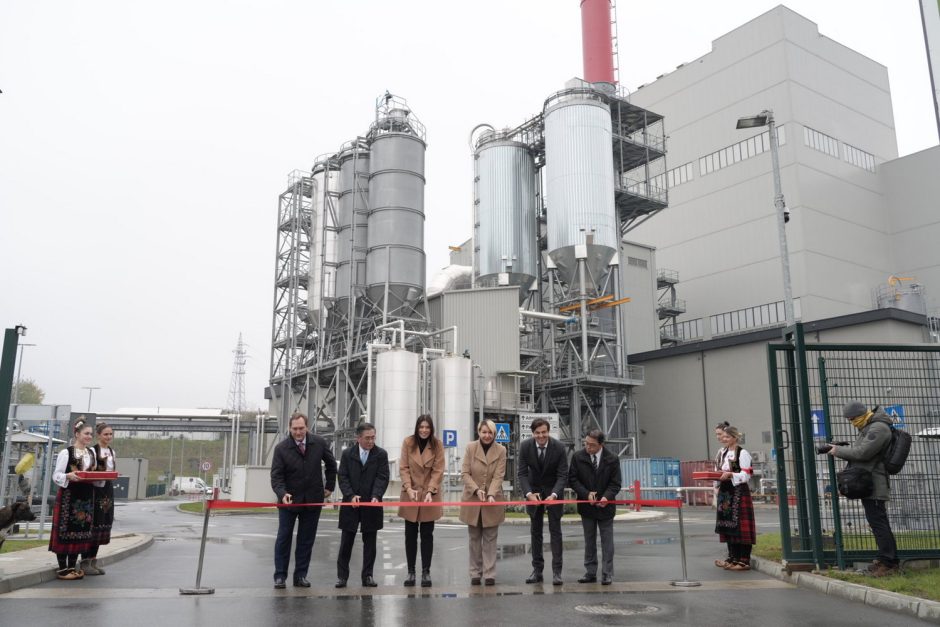
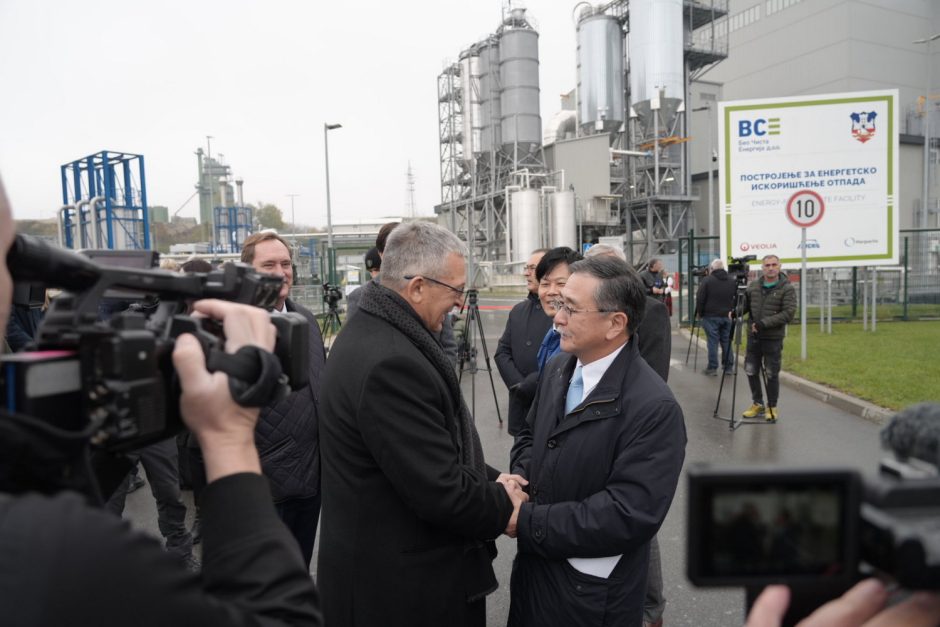
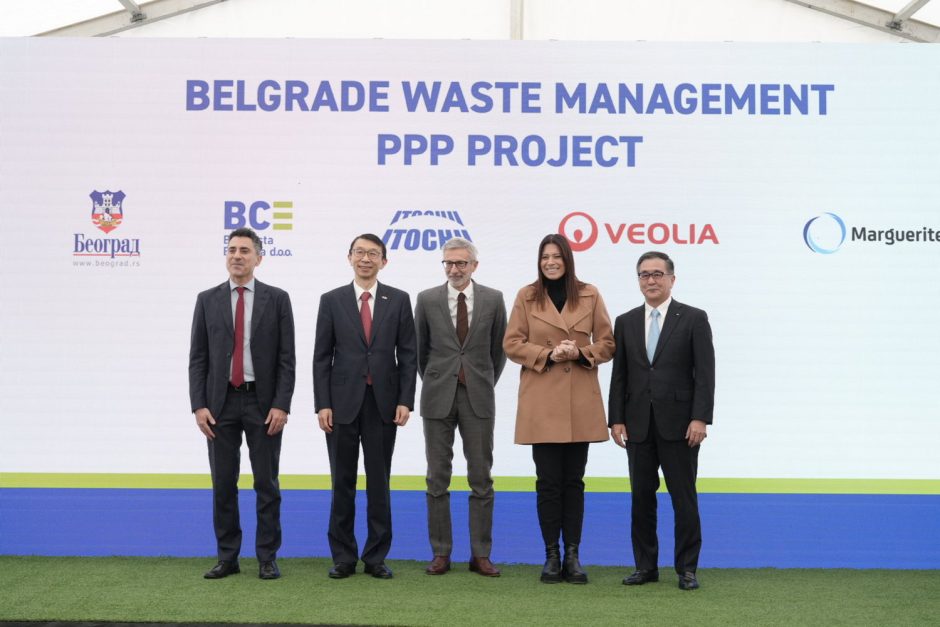
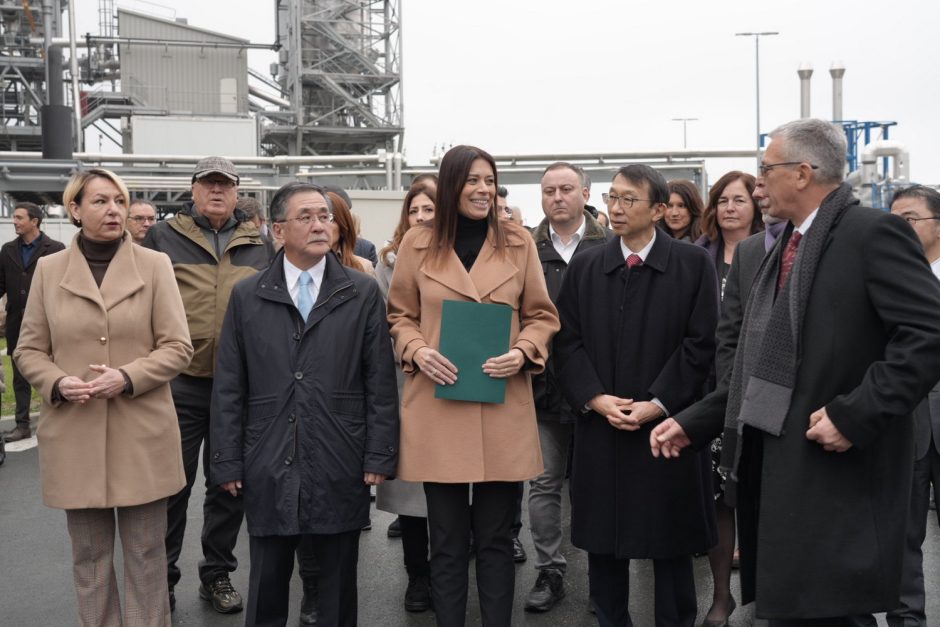
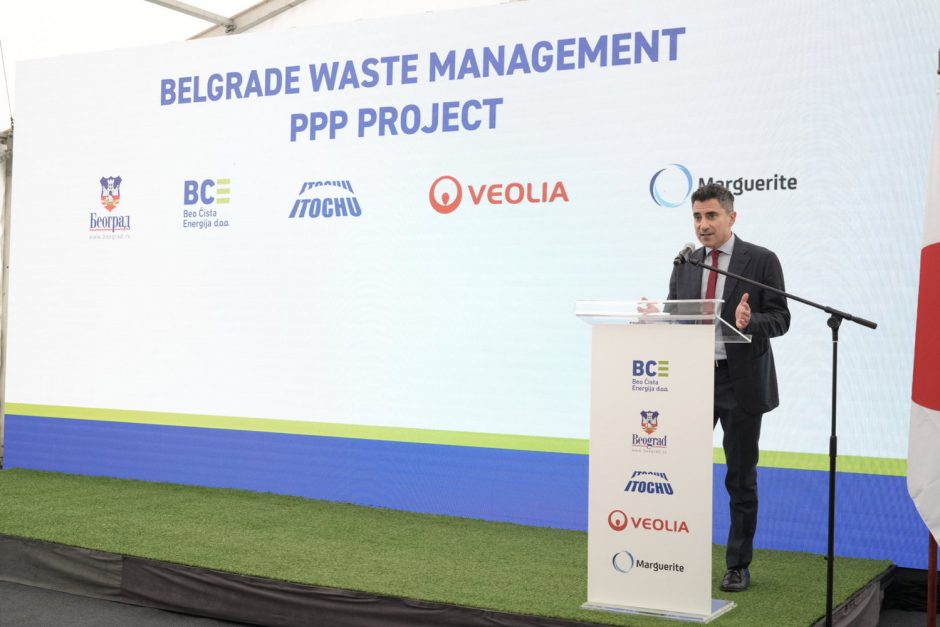
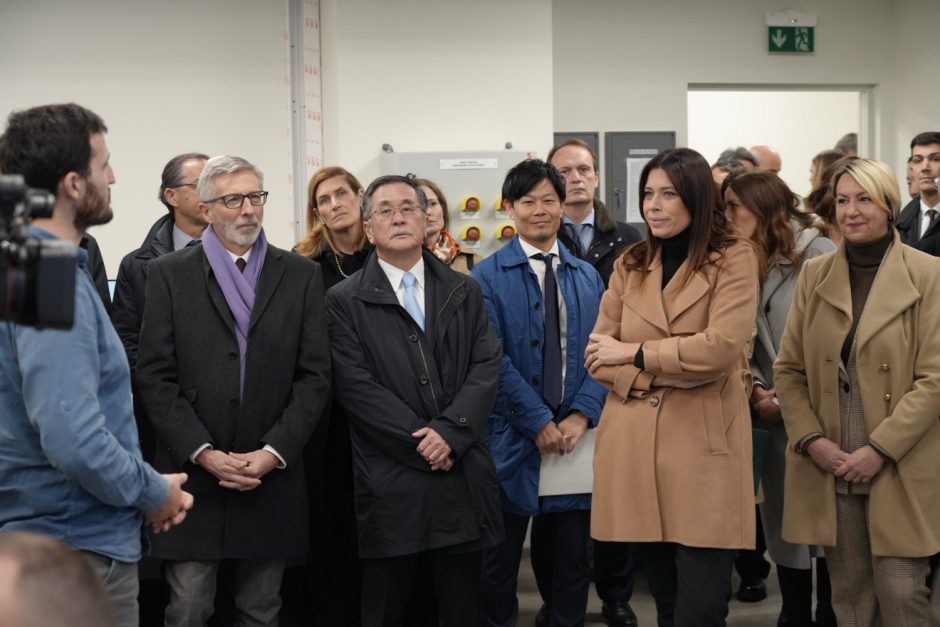
Beo Čista Energija ltd., a special purpose vehicle founded by ITOCHU Corporation (Japan), Veolia Group (France), and the Marguerite Fund (Luxembourg), private partner of the City of Belgrade, has started providing all utilities services to Belgrade citizens as per the Public-Private Partnership Contract as of July 1, 2024. Today, the company marks a milestone with the ceremonial opening of the Energy-from-Waste Plant for thermal treatment of solid, non-hazardous, municipal waste at the Vinča Waste Management Center in the presence of officials from the Serbian Government, City of Belgrade, project sponsors and lenders, and other dignitaries. This plant thermally treats more than half of Belgrade’s municipal waste, transforming it into green heat and electricity delivered to consumers. The development of the EfW Plant, the new sanitary landfill, the Construction and Demolition Waste Recycling Unit, and the Leachate Treatment Plant, represents a major advancement in improving sustainable waste management in Belgrade, significantly enhancing environmental quality.
Deputy Prime Minister and Minister of Environmental Protection, Irena Vujović, stated that the modern complex in Vinča is an example of how the best practices and technologies, applied in developed countries, can be effectively used, which is important for delivering other projects in Serbia.
“The Energy-from-Waste facility we have officially put into operation today is particularly important because it coverts waste into heat and electricity, meeting the needs of a large number of Belgrade citizens. Additionally, the plant’s operation has reduced carbon dioxide emissions by 210,000 tons, contributing to better air quality. The facility is also equipped with smart systems and alarms to signal us if emissions exceed the limit values. Beyond this plant, the complex includes a landfill for construction and inert waste, addressing the needs of the capital’s residents. I want to thank the citizens for their patience; although a long time has passed since the contract was signed, the results are now evident. We continue to work, with the construction of the landfill gas collection plant still ahead. There is more to be done, but this marks a significant step forward in waste management,” Vujović said.
The project being implemented by the City of Belgrade, in partnership with a private partner at Vinča, represents a major milestone for Serbia and the Ministry of Environmental Protection. The Belgrade landfill has transitioned from the list of Serbia’s “environmental black spots” to the list of best practices in addressing ecological challenges by applying integrated solutions for the remediation of large, unsanitary landfills. The commissioning of all built waste treatment and disposal facilities at the Vinča Waste Management Center, coupled with substantial investments in developing and upgrading Serbia’s waste management infrastructure, demonstrates the Serbian Government’s commitment to enhancing the quality of life for all citizens.
The City of Belgrade, through its cooperation with the private partner, has provided a sustainable solution for managing over 800,000 tons of municipal and construction waste produced annually by Belgrade citizens, and more importantly, significantly reduced environmental pollution from the old unsanitary landfill. Additionally, waste and landfill gas utilization will supply heat for approximately 10% of Belgrade households and electricity for about 5%. Beo Čista Energija’s waste treatment and disposal services will enable Belgrade to further develop and improve its waste collection and primary separation infrastructure.
Statement of Mr. Hiroyuki Tsubai, Member of the Board and Executive Vice President of ITOCHU Corporation
ITOCHU Corporation is proud to have completed one of the most challenging municipal waste management and energy-to-waste projects from a global perspective. We extend our sincere gratitude to all the stakeholders, especially, to the City of Belgrade for their professional cooperation and to the Government of the Republic of Serbia for its support. We are pleased to have contributed in enhancing environmental conditions in Belgrade and taking a significant step toward a sustainable future for its citizens. Being active since opening an office in Belgrade in 1962, the Republic of Serbia, and the City of Belgrade in particular, is one of the most important markets for ITOCHU Corporation. We are very pleased to add a new page to our history in Serbia. We will continue to contribute to the further development of Serbia and the City of Belgrade through investment and trade.
Statement of Mr. Aleksandar Obradović, Managing Director of Veolia Waste Vinča Operator
As one of the sponsors of Beo Čista Energija ltd., Veolia Group holds the responsibility for operating and maintaining all built facilities over the next 25 years. With our knowledge and global expertise in waste and water management, we are confident that the Serbian professionals we’ve hired and trained, together with our experts, will apply their expert knowledge to efficiently and responsibly manage waste, with a constant care to protect and enhance the environment. Veolia Group has ambitious plans for the Serbian market and will continue to engage in new projects in the sectors of waste management and drinking and wastewater treatment, delivering visible improvements to both living conditions and the environment for Serbian citizens.
Statement of William Pierson, Managing Partner at Marguerite
We are glad to have played a vital role in implementing this unique and complex project as one of the investors in Beo Čista Energija. The Public-Private Partnership Contract allowed the company to introduce integrated waste management, and enable long-term, sustainable energy production from waste. The project’s environmental and social outcomes align with our initial expectations, as it has significantly contributed to reducing past adverse environmental impact of waste management, and has improved Belgrade’s overall environmental credentials for its residents. The annual reduction of 210,000 tons of CO2eq—equivalent to the carbon absorption of a forest of over three million ten-year-old trees—clearly shows the project’s importance and scale.



